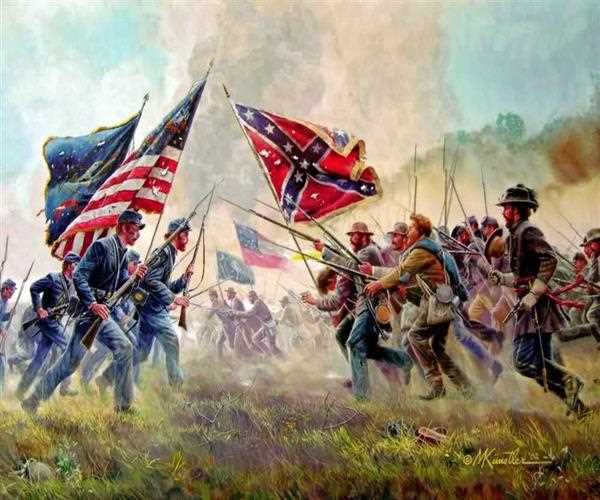Withdrawal, as it applies to the flare-up of the American Civil War, involves the arrangement of occasions that started on December 20, 1860, and reached out through June 8 of the following year when eleven states in the Lower and Upper South separated their ties with the Union.

The initial seven withdrawing conditions of the Lower South set up a temporary government at Montgomery, Alabama. The Union was in this manner partitioned roughly on geographic lines.
The outskirt slave conditions of Maryland, Delaware, Kentucky, and Missouri stayed with the Union, in spite of the fact that they all contributed volunteers to the Confederacy. Fifty regions of western Virginia were faithful to the Union government, and in 1863 this region was constituted the different province of West Virginia. Severance in down to earth terms implied that about 33% of the populace with generous material assets had pulled back from what had constituted a solitary country and built up a different government.
The term withdrawal had been utilized as right on time as 1776. South Carolina debilitated partition when the Continental Congress tried to impose every one of the settlements based on an aggregate populace check that would incorporate slaves. Severance in this case and all through the prior to the wartime frame came to mean the affirmation of minority sectional interests against what was seen to be an antagonistic or apathetic greater part.
Severance had involved worry to a few individuals from the Constitutional Convention that met at Philadelphia in 1787. Hypothetically, severance was bound up intimately with Whig thought, which asserted the privilege of an upset against an authoritarian government.
Any government republic by its extremely nature welcomed test to focal control, a risk that James Madison perceived. He looked for at the tradition a condition that would deny severance from the proposed association once the states had sanctioned the Constitution. In banter over different focuses, Madison more than once cautioned that severance or "disagreement" was a noteworthy concern.
The Constitution as surrounded lastly acknowledged by the states partitioned the activity of sovereign power between the states and the national government. By uprightness of the way that it was an authoritative record and in many regards specified the forces of the local government, the division was weighted toward the states. However, a great part of the sanction was attracted up general terms and was helpless to understanding that may differ with time and condition.
The plain thing that Madison dreaded went up against a solid frame amid the gathering skirmishes of the Washington and Adams organizations. What's more, incomprehensibly, Madison ended up included with the individuals who appeared to undermine detachment.
In their response to the discretionary supposition of intensity in the Alien and Sedition Acts, Thomas Jefferson and Madison contended for state cancellation of this enactment. Jefferson's reaction in the Kentucky Resolution propelled the conservative translation of the government Constitution. Madison's Virginia Resolution was unquestionably direct, yet the two resolutions hoped to state action against what was regarded illegal laws.
The national legal, they felt, was pressed with their rivals.
Neither one of the resolutions guaranteed unique sway for the states, yet both contended for a strict perusing of identified forces. Amid the War of 1812, a repelled Federalist larger part in New England propelled the reduced hypothesis and thought about severance from the Union.